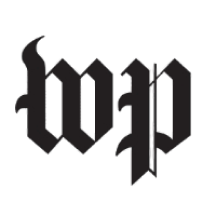
By Howard Schneider
WASHINGTON (Reuters) -U.S. Federal Reserve Chair Jerome Powell said on Tuesday the central bank needed to continue balancing the competing risks of high inflation and a weakening job market in coming interest rate decisions, even as his colleagues staked out arguments on both sides of the policy divide.
"Near-term risks to inflation are tilted to the upside and risks to employment to the downside - a challenging situation," Powell said in remarks that stuck close to language used last week when the central bank cut its benchmark rate a quarter of a percentage point. The current rate, in the range of 4% to 4.25%, is still considered high enough to lean against price pressures in the economy, but "leaves us well positioned to respond to potential economic developments. Our policy is not on a preset course," Powell said.
While that phrase is something of a mantra for central bankers, it has taken on particular resonance now, with strong opinions emerging on both side of the policy divide.
In remarks before Powell spoke on Tuesday, Fed Vice Chair for Supervision Michelle Bowman said the Fed could downplay concerns about persistent inflation and needed to make a commitment to cut rates in support of a job market she worries may be about to rupture.
"It's a lot easier to support the labor market by lowering the federal funds rate than it is to fix it after it's broken," Bowman said. While the jobless rate at 4.3% is around estimates of full employment, Bowman said the slowdown in hiring is such that "it is time for the Committee to act decisively and proactively to address decreasing labor market dynamism and emerging signs of fragility" with steady rate cuts.
"If demand conditions do not improve, businesses may need to begin to lay off workers," she said.
By contrast, regional Fed Reserve Bank presidents who spoke this week recommended caution about further rate cuts while inflation remained nearly a percentage point above the central bank's target and the impact of the administration's tariffs and other policies is still being assessed.
"With inflation having been over the target for four and a half years in a row and rising, I think we need to be a little careful with getting overly upfront aggressive," Chicago Fed President Austan Goolsbee said on CNBC on Tuesday.
The Fed next meets on October 28-29, with investors assigning a high probability that officials will cut interest rates again, consistent with projections issued after last week's meeting showing quarter-point cuts anticipated in October and December.
But opinion remains divided, with Powell for now steering a noncommittal path with further data to come on jobs and inflation.
While job market concerns are now competing more with high inflation in the minds of Fed officials, Powell said there was no “risk-free path” for the Fed to follow at the moment.
In comments prepared for delivery to Rhode Island's Greater Providence Chamber of Commerce, Powell offered little indication of when he thinks the Fed might next cut interest rates, noting that there was danger to both cutting too fast and risking a new surge of inflation, or reducing rates too slowly and possibly causing unemployment to rise unnecessarily.
"If we ease too aggressively, we could leave the inflation job unfinished and need to reverse course later to fully restore two percent inflation. If we maintain restrictive policy too long, the labor market could soften unnecessarily," Powell said.
Powell agreed there is reason to be concerned about the job market, with recent job growth averaging around 25,000 for the past three months "running below the 'breakeven' rate needed to hold the unemployment rate constant."
But other job indicators were "broadly stable," he said.
Inflation meanwhile remained "somewhat elevated," with tariffs driving goods prices higher. While that impact will likely fade, he said, it will take time, and it was up to the Fed to "make sure that this one-time increase in prices does not become an ongoing inflation problem."
Powell spoke at a time when the Fed is under intense pressure from the Trump administration to cut rates, with an effort by the president to fire Governor Lisa Cook pending before the Supreme Court, and administration officials challenging the wisdom of Fed emergency programs during the pandemic and during the 2007 to 2009 economic crisis.
Powell said those efforts, under extraordinary circumstances, likely helped the economy avoid far worse outcomes.
"These two back-to-back world historical crises have left behind scars that will be with us for a long time. In democracies around the world, public trust in economic and political institutions has been challenged. Those of us who are in public service at this time need to focus tightly on carrying out our critical missions to the best of our ability in the midst of stormy seas and powerful crosswinds," said Powell, whose term as chair ends in May, with Trump already mulling his successor.
"Despite these two unique, extremely large shocks, the U.S. economy has performed as well or better than other large, advanced economies around the world."
(Reporting by Howard Schneider; Editing by Andrea Ricci)

 Reuters US Domestic
Reuters US Domestic
 AlterNet
AlterNet WEIS Radio
WEIS Radio New York Post Business
New York Post Business Sun Sentinel
Sun Sentinel Hawaii Tribune-Herald
Hawaii Tribune-Herald The Washington Post
The Washington Post Ravalli Republic
Ravalli Republic The Advocate
The Advocate WNDU
WNDU Amarillo Globe-News
Amarillo Globe-News The Washington Times
The Washington Times Newsday
Newsday STAT News
STAT News